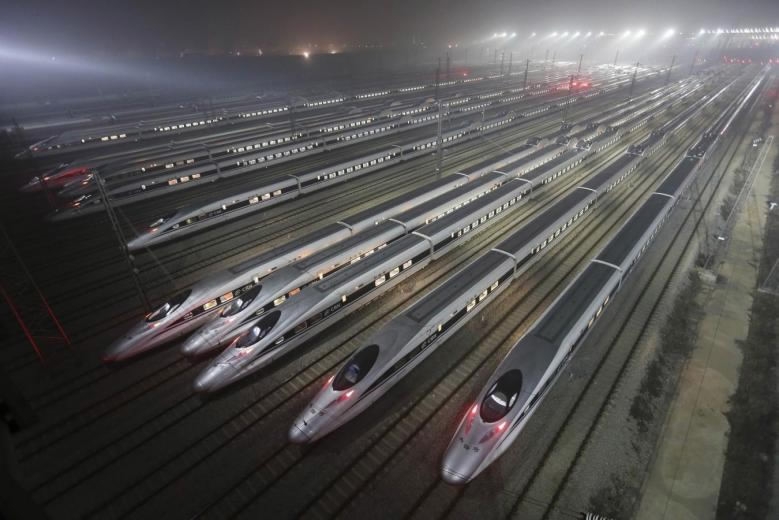
Business
11:11, 12-Jul-2017
Thailand approves first phase of $5.5 bln railway project with China

Thailand on Tuesday approved construction of the first phase of a 5.5-billion US dollar railway project to link the industrial eastern seaboard with southern China through Laos.
Prime Minister Prayuth Chan-o-cha made use of an executive order last month to pave the way for the project, which has been beset by delays, including negotiations on loan terms.
The first phase encompasses six railway stations on a 250km high-speed line linking the Thai capital of Bangkok and the northeastern Province of Nakorn Ratchasima.

CGTN Photo
CGTN Photo
"This project is part of the development of a regional transport network, in particular China's 'One Belt, One Road' initiative that will link Europe, Asia and Southeast Asia together," Korbsak Pootrakool, Vice Minister at the Prime Minister's Office, told reporters.

An employee works on a high speed train model CRH380B at a final assembly line of China CNR's Tangshan Railway Vehicle's factory in Tangshan, Hebei Province, February 11, 2015. /Reuters Photo
An employee works on a high speed train model CRH380B at a final assembly line of China CNR's Tangshan Railway Vehicle's factory in Tangshan, Hebei Province, February 11, 2015. /Reuters Photo

CRH380 Harmony bullet trains are seen at a high-speed train maintenance base in Wuhan, Hubei Province, December 25, 2012. /Reuters Photo
CRH380 Harmony bullet trains are seen at a high-speed train maintenance base in Wuhan, Hubei Province, December 25, 2012. /Reuters Photo
The link forms part of Beijing's regional infrastructure drive to connect Chinese cities with Southeast Asia, including Thailand's industrial zones and its eastern deep sea port.
Thailand's government said Thai firms will be responsible for construction while China will be responsible for the railway technology, signal systems and technical training.
"The project will use Thai materials but Chinese technology will be used in the construction," Prayuth said.
"We will send people to learn this so that we can operate the rail system ourselves in the future."
(Source: Reuters)

SITEMAP
Copyright © 2018 CGTN. Beijing ICP prepared NO.16065310-3
Copyright © 2018 CGTN. Beijing ICP prepared NO.16065310-3